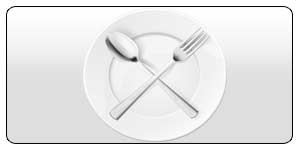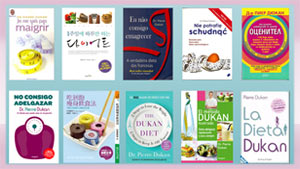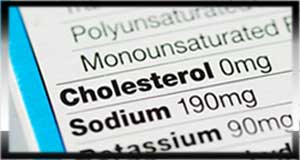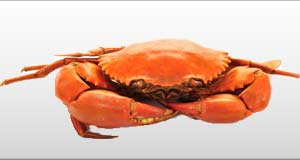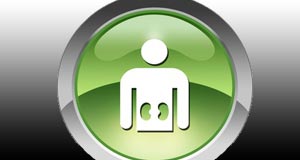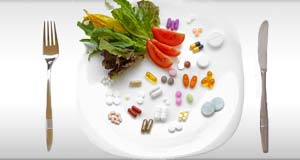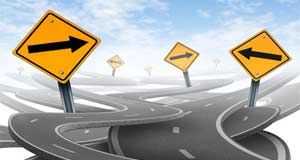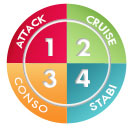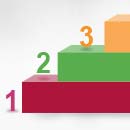Low Carb Diet Myths
Myth 1 - The Dukan Diet is too restrictive and is a starvation diet
One of the strongest points in favor of this diet is the fact that you never have to weigh or measure your food and you can eat as much as you like. There is no counting of carbs, calories or any other nutritional values in any phase of The Dukan Diet. In The Dukan Diet, you eat from the list of 100 foods, while including other foods in the Consolidation phase. Portion sizes are based on how hungry you feel. If you are still hungry – eat some more! Anyone who reads the official book will immediately see that the Dukan Diet encourages you to eat as much as you want! No starvation here.
The Dukan Diet gives you many options, including a list of 100 approved foods. You don’t have to think about the food you’re eating and whether or not it will cause you to gain weight – you can be confident the approved foods will not cause you to put on any pounds. It’s auto-pilot for weight loss. Myth 2 - The Dukan Diet is a fad diet
There is a tendency to consider anything new a fad. Yes, the Dukan diet is new to the USA and Canada, but this weight loss program has a long history. The official book is translated into 10 different languages and has been the diet of the French for the last 20 years. In fact, the very first diets were based on cutting down carbohydrates. In the Paleolithic era foods that were eaten prior to agriculture and animal husbandry included meat, fish, shellfish, eggs, tree nuts, vegetables, roots, fruit, berries, and mushrooms, etc. The science behind the Dukan diet is nothing new and is based on proven nutrition principles.
Myth 3 - The Dukan Diet is unhealthy
The Dukan diet encourages you to eat whole unprocessed natural foods free of chemicals and preservatives. Dr. Pierre Dukan emphasis’s the importance of preparing your own food from scratch and savoring each meal. The diet urges you to drink plenty of water, to eat healthier, more balanced meals and to avoid high sodium processed foods as well as fatty, sugary snacks and desserts. The Dukan Diet focuses on lean protein including non-fat dairy – which is great for your heart. Fresh vegetables, fruits and whole grain products plus your daily serving of oat bran are the foundation of the Stabilization phase that you will follow for the rest of your life. Many people eat too many carbohydrates, particularly bread, potatoes, rice, and pasta. The Dukan diet teaches us that it’s possible to cut down on these carbohydrates dramatically without sacrificing taste, flavor and enjoyment. Finally, the Dukan Diet is not just about nutrition, it also incorporates regular exercise as an essential part of the program. It should be no surprise that many people who follow the Dukan Diet report better overall health conditions beyond weight loss, including decreased cholesterol levels, lower A1C readings, and lower blood pressure. Study Links: Effects of Eating Fresh Lean Pork on Cardiometabolic Health Parameters Low-Carb, Higher-Fat Diets Add No Arterial Health Risks to Obese People Seeking to Lose Weight Myth 4 - The all-protein days are a little difficult to get through
Pure Proteins reduce your appetite. Eating sweet foods or fats does create a superficial feeling of being satiated, which soon disappears by the return of hunger. Recent studies have proven that snacking on sweet or fatty foods does not delay the urge to eat again or reduce the quantities eaten at the next meal. On the other hand, the Dukan Diet allows you to eat as much protein as you want so you never feel hungry. What is more, eating only protein foods produces ketones, powerful natural appetite suppressants that are responsible for a lasting feeling of “fullness” and a reduced urge to eat. After 2 or 3 days on a Pure Protein diet, hunger disappears completely, and you can follow the Dukan Diet without that feeling of hunger that weighs down most other diets. Study Links:
Myth 5 - High protein diets cause kidney problems
Burning body fat instead of carbohydrates for fuel is known as ketosis and while it produces the obvious benefits of weight loss it can – in some rare cases – put some minor strains on your kidneys and liver and in extreme cases cause damage. In general, high protein diets do not cause kidney problems and are only a cause for concern for those who already have impaired kidney function. Drinking the recommended 1.5 liters a day helps flush the kidneys and keeps uric acids levels in a normal range. Study Links:
Myth 6 - The dieter experiences bad breath, constipation, fatigue
If you’re suffering from bad breath, don’t fret, this is actually a sign that you are not only losing weight but that you are shedding pounds quickly. The Dukan Diet is a high-protein diet, which can cause an accumulation of ketones in your blood, which actually helps you to feel full but can also cause bad breath. Eating oat bran can help eliminate your bad breath issues. Also, drink more water as you will eliminate more ketones through urine than through your breath. Chewing gum is another useful tool in the fight against bad breath. Bad breath and dry mouth occur with any weight loss diet, but they will be more evident with the Pure Protein Attack phase of the diet. They are a sign that you are losing weight, and as such you should welcome them as proof of success. You can ease these symptoms by drinking at least 6 glasses of water a day. Bowel movements may be less frequent but don’t take this as a sign of constipation – it is just the reduction in the amount of waste due to the low fiber content of proteins. Note that you are asked to drink a lot of water and to consume oat bran as part of the Dukan diet – both are designed to relieve constipation. However, if constipation arises, this diet may not be for you, or you might need to skip the Attack phase and go straight to the Cruise phase. Add 1 tablespoon of wheat bran or psyllium fiber to a glass of water if constipation becomes an issue. You might feel a little tired during the first 2 days and not up to prolonged activity, but by the third day your tiredness should disappear. Myth 7 - The first phase shortchanges the body of heart-healthy fiber, fat, and essential vitamins and minerals
There is a wide variety of approved foods in the Attack phase – 68 in total to choose from. Foods include fresh seafood, poultry, lean meats, non-fat dairy and oat bran. These are a great source of omega 3 essential fatty acids, vitamins and minerals. Oat bran, which is eaten throughout the diet, provides a great source of fiber. Furthermore, the Attack phase only lasts 1-7 days – which is not enough time to cause a nutrient deficiency.
Study Links: Bioactive oat β-glucan reduces LDL cholesterol in Caucasians and non-Caucasians Myth 8 - The Dukan Diet is complicated
The diet lists 100 allowed foods to be eaten in unlimited quantities. In the Attack phase you stick with the Proteins category. In Cruise you alternate between Pure Protein days and protein and vegetable days where anything on the list can be consumed. Stay within these food categories and you will not have to think about counting calories, carbs or anything else for that matter.
Human food preferences and cultural identity: The case of Aragón (Spain) |
Related Articles

 About Dukan Diet
About Dukan Diet Attack Phase
Attack Phase